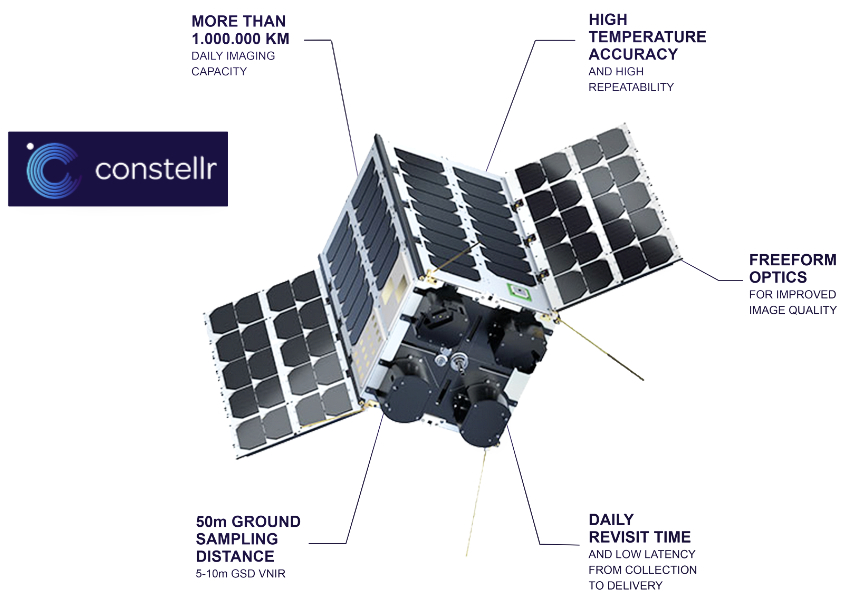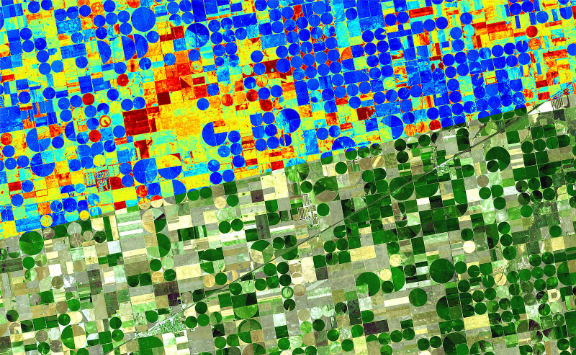
Kongsberg NanoAvionics has signed a contract with thermal data provider Constellr to supply that firm with two of NanoAvionic’s flagship MP42 smallsat buses. Having recently raised 10 million euros, Constellr will use the two satellites to develop the world’s first, scalable, water stress monitoring system.

Collaborating since the early days of the German startup, NanoAvionics has already provided consulting services and a feasibility study for Constellr’s initial satellite constellation. The thermal infrared payloads for the mission are developed by OHB, which is also one of the investors of Constellr. The two satellites will be deployed via an Exolaunch CarboNIX separation system, developed by that company in 2024.
Constellr is pioneering the use of thermal infrared microsatellites for a water stress monitoring system. Within five years, Constellr expects to help save 60 billion tons of water (about 40%) and avoid 14 megatons of CO2 being emitted while generating billions of Euros in gross benefits for farmers.

Globally, more than 70% of freshwater is used for agriculture according to the Food and Agriculture Organisation of the United Nations (UN). 60% of that goes to waste. The UN also estimates that 50% more food will be needed by the Earth’s population by 2050, leading to a massive increase of freshwater demand for irrigation.
To mitigate this unsustainable situation and an inability to precisely measure the water needed in agriculture, Constellr aims to offer a water monitoring system for the agricultural sector globally. Its satellite images and high-precision data will allow to recognize impending droughts earlier than existing methods and fast enough to mitigate trough targeted irrigation.
Marius Bierdel, CTO of Constellr, said, “With NanoAvionics’ expertise and their modular satellite buses, we have found a partner able to address the high-performance needs of our constellation, providing high agility, and stability as well as the significant power demand required to deliver high quality infrared images that allow us to precisely measure the water needed in agriculture.”
Vytenis J. Buzas, co-founder and CEO of NanoAvionics, said, “Constellr is the third private company to use our satellite buses with the aim to counter the effects of climate change. The other two are Chile’s Lemu with a nanosatellite to observe biodiversity for the world’s only biosphere atlas, and France’s Absolut Sensing with a demonstration nanosatellite for greenhouse gas emission measurement. These devastating effects can be felt everywhere and we are excited that our satellite buses are used to observe, analyze and ultimately mitigate them.”
Dr. Max Gulde, co-Founder and CEO of Constellr, said, “By providing the central dataset, reliable forecasts can be made and the risk of crop loss reduced. Farmers can determine their yield more robustly and much earlier, and avoid potentially catastrophic supply chain effects.”
